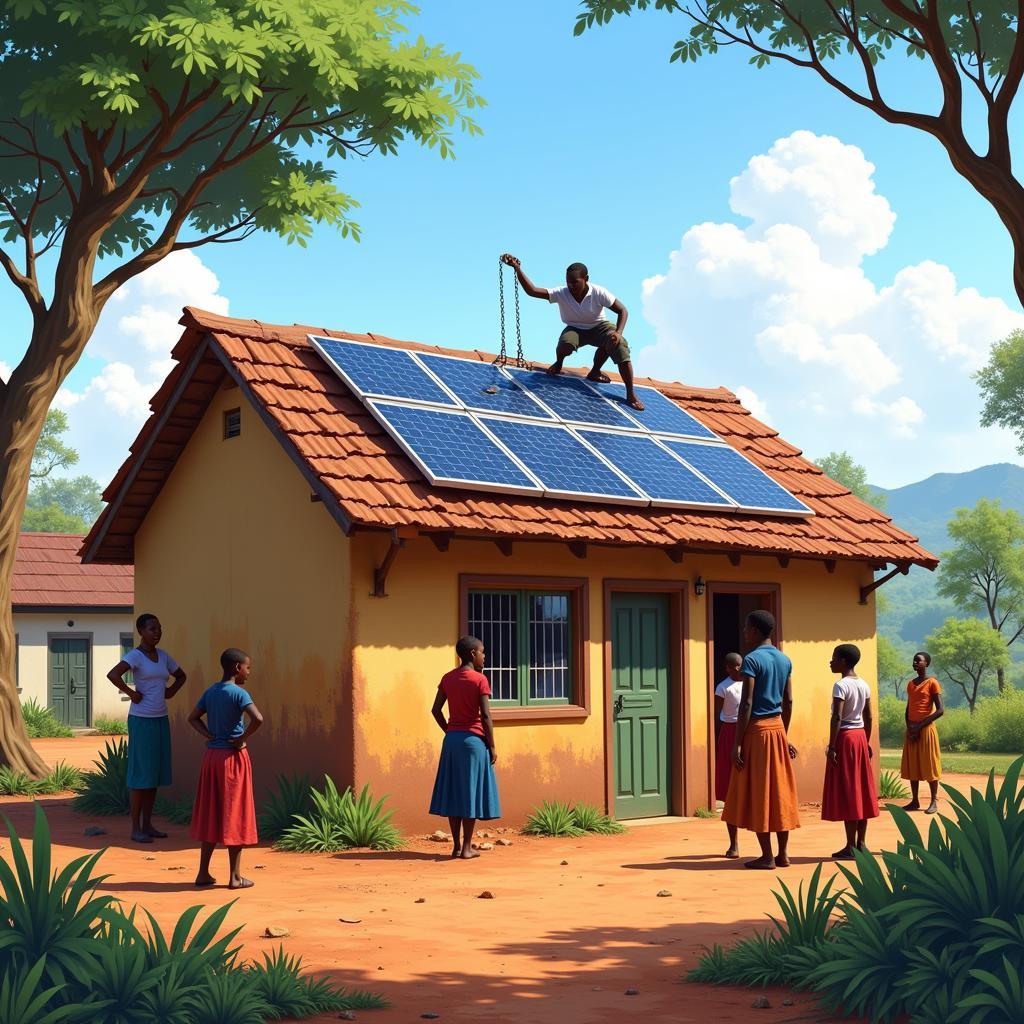African Children Electric Bulb: A Paradox of Need and Innovation
The phrase “African Children Electric Bulb” might seem unusual at first. It hints at a stark reality: millions across the African continent live without access to electricity, a basic necessity often taken for granted elsewhere. Yet, within this challenge, a spirit of innovation thrives. This article explores the complexities of this situation, shedding light on the challenges faced, the ingenious solutions emerging, and the impact on the lives of African children.
The Power Gap: A Barrier to Education and Opportunity
For many African children, the lack of electricity casts a long shadow over their lives, particularly in the realm of education. Studying by the dim, smoky light of kerosene lamps or candles is a common experience, leading to eye strain, headaches, and respiratory problems. This lack of adequate lighting not only hinders their academic progress but also limits their opportunities for personal growth and development.
Beyond the Textbook: The Ripple Effect of Limited Electricity
The impact extends far beyond the classroom. Without electricity, access to information and communication technologies is severely restricted. Imagine a world without the internet, computers, or even television – this is the reality for many. This digital divide isolates communities, limits access to vital information, and hinders economic growth.
 Solar Panel Installation in an African Village
Solar Panel Installation in an African Village
A Beacon of Hope: Innovative Solutions Lighting the Way
Despite these immense challenges, a spirit of innovation and resilience shines through. Across the continent, communities are finding ingenious ways to harness energy and bring light to their lives. Solar power is emerging as a game-changer, with solar-powered lamps and home systems becoming increasingly affordable and accessible.
Empowering a Generation: The Transformative Power of Sustainable Energy
The impact of these sustainable energy solutions on the lives of African children is profound.
- Improved Education: With access to reliable lighting, children can study for longer hours, improving their academic performance and unlocking their full potential.
- Enhanced Healthcare: Solar-powered refrigerators can store vaccines and essential medicines, improving healthcare delivery in remote areas.
- Economic Opportunities: Electricity allows for the creation of small businesses, empowering communities and fostering economic growth.
From Electric Bulbs to Brighter Futures: A Collective Effort
The journey towards ensuring every African child has access to electricity requires a multi-faceted approach. Governments, NGOs, and private sector companies must work together to:
- Invest in renewable energy infrastructure, particularly in rural and underserved areas.
- Promote affordable and accessible energy solutions like solar lamps and home systems.
- Support education and training programs that equip communities with the skills to install and maintain these technologies.
The “African children electric bulb” narrative is not just about a lack of electricity; it’s about the unwavering spirit of a continent striving for a brighter future. By investing in sustainable energy solutions, we can empower generations to come and unlock the immense potential within every African child.
